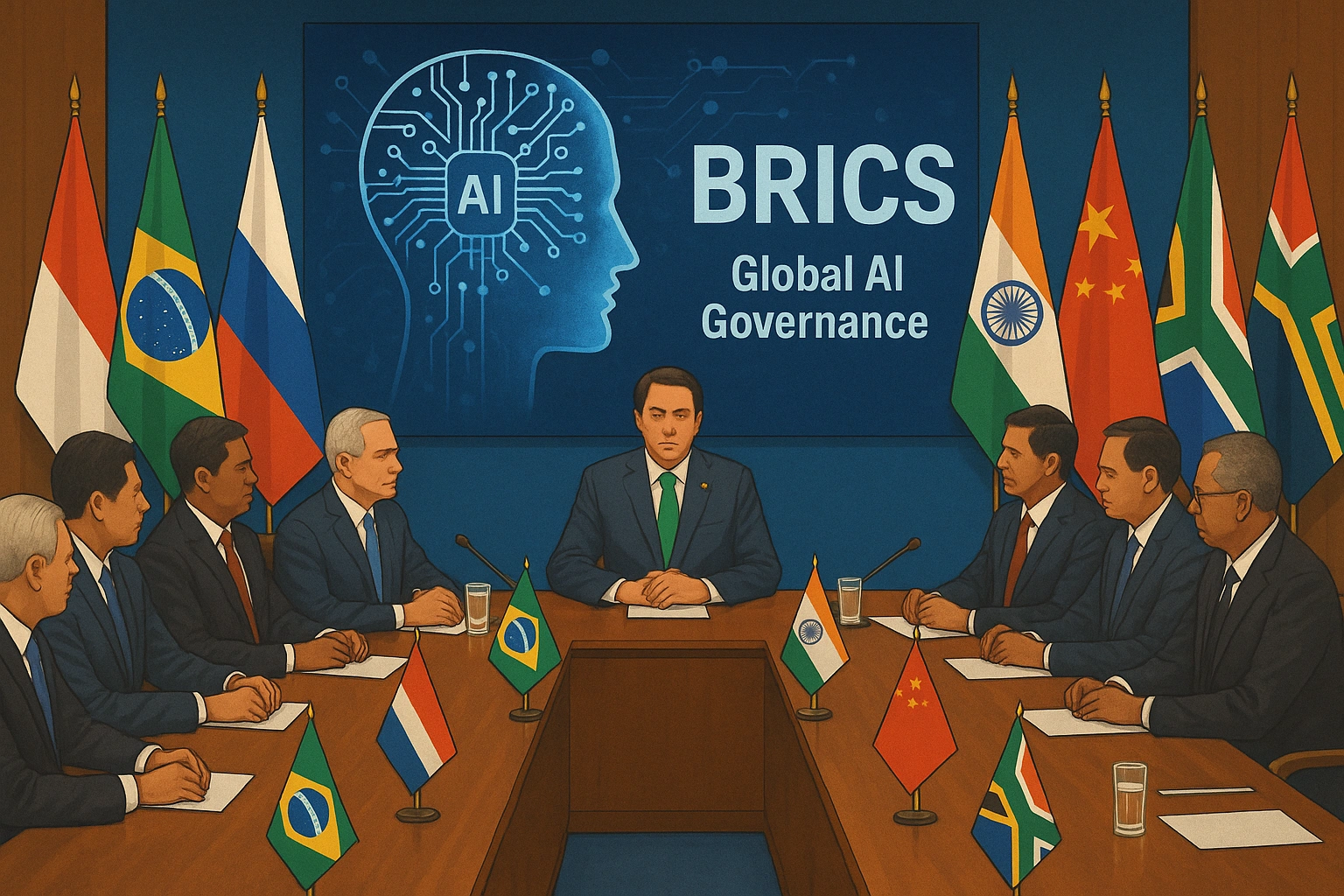BRICS Summit Outcomes
The 2025 BRICS Summit in Rio de Janeiro was significant event. Event shaken up the global dialogue on AI governance and presented a strong, united front from the Global South. The West is increasing conversations around AI regulation. But the BRICS nations, which now include Indonesia and a wider circle of allies, made a strong mark by introducing a comprehensive structure on the use of AI. Emphasizing the need of inclusivity and equity and digital self-determination as we navigate AI’s future. I’m pleased the Brazilian-hosted summit seems to have found a way to have a sturdy impact, even if I personally had some doubts on how it could go, but instead, the summit delivered substantial results, adopting three specific thematic declarations along with the general communiqué something that’s pretty rare for BRICS, which usually avoids getting too deep into detail. Among these, the Statement on Global AI Governance was particularly noteworthy for its ambitious goals and clear ideological stance. In contrast to the vaguer, “human-centric” statements from the G7, the BRICS declaration really places AI governance within the context of developmental justice. It calls for digital sovereignty, equitable access to AI technologies, and a balanced approach to intellectual property rights, making it clear that AI access shouldn’t just belong to a few advanced countries but should be a shared right for everyone. By bringing up the concept of “the right to development,” BRICS positions AI not just as a tech ethics issue, but as a fundamental part of economic fairness and global inclusion. This difference from the G7 isn’t just talk. Historically, BRICS has often lagged behind in responding to Western discussions on technology governance, usually playing catch-up This time, though, both sides undertook simultaneous work on AI governance, revealing the level of confidence attained as well as the intention BRICS has to influence global benchmarks.
Additionally, the attention to the dormant IP discussion of the BRICS meeting during the pandemic demonstrates the commitment to rebuilding the innovation ecosystem. The consideration of public concern and proprietary concern shows an effort to mitigate the monopolistic practices of Western technology companies that burden developing nations with a dependency on technology.
BRICS is further claiming that the governance of AI cannot be a monopoly of a few nations which is critical with the growing power of generative AI and machine learning over economies, education, surveillance, warfare, and democracy. These technologies will only be held by a few nations or corporations, the divide and disparity of access to digital resources will only increase.
The 2025 BRICS Summit was more than just a diplomatic meeting, as it underscored a new course of action. Through BRICS, the Global South is determined to take part in the unfolding of the AI revolution, not just act as passive observers. It wants to take charge of its governance. The real test now lies in making this vision a reality through investments in local AI research, building capacity, and working together on policy-making to ensure that the promise of AI is genuinely global, fair, and inclusive.







